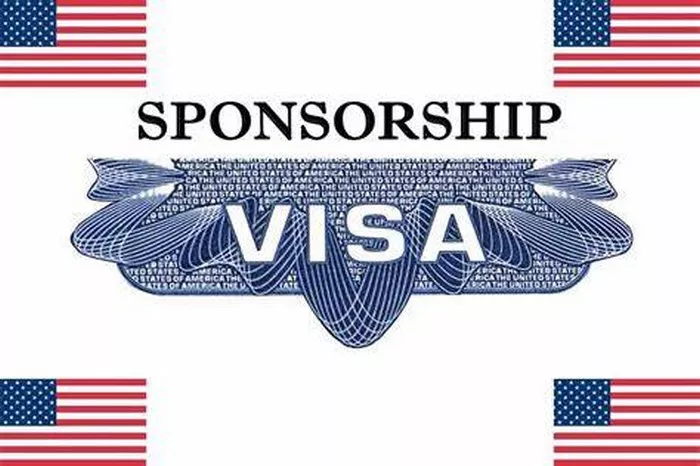In the complex landscape of immigration, sponsorship plays a pivotal role in facilitating the journey of individuals seeking to live and work in a new country. Whether it’s family reunification, employment opportunities, or humanitarian reasons, sponsors provide crucial support and assurance to immigrants navigating the intricate legal and procedural frameworks of immigration systems worldwide.
Immigration policies vary significantly across nations, but a common thread is the requirement for sponsorship in various forms. A sponsor is typically an individual, organization, or even a government entity that takes on specific responsibilities to support an immigrant’s application for entry, residence, or citizenship. This article delves into the diverse roles sponsors play, the responsibilities they undertake, and the eligibility criteria they must meet.
Understanding Sponsorship
Sponsorship is fundamentally a commitment to support an immigrant financially, socially, and legally during their transition into a new country. It signifies a willingness to take responsibility for the sponsored individual’s well-being and integration into the community. The nature of sponsorship can vary widely depending on the immigration category and the policies of the host country.
Types of Sponsors
1. Family Sponsors
Family reunification is a cornerstone of many immigration policies, allowing immigrants to join their close relatives who are already settled in a country. In such cases, family members (often citizens or permanent residents) serve as sponsors. The relationships that typically qualify for sponsorship include spouses, parents, children, and siblings, though specifics vary between countries.
2. Employer Sponsors
Employers often sponsor skilled workers or individuals with unique talents that are in demand but scarce in the local workforce. This type of sponsorship usually involves proving that the employer has a genuine need for the immigrant’s skills and is unable to fill the position with a local candidate. Employment-based sponsorship can lead to temporary work permits or permanent residency, depending on the country’s immigration policies.
3. Humanitarian Sponsors
Humanitarian sponsorship is rooted in compassion and international obligations. It involves sponsoring refugees, asylum seekers, or individuals fleeing persecution or conflict in their home countries. Humanitarian sponsors may be individuals, non-governmental organizations (NGOs), or government entities committed to providing refuge and protection to those in need.
4. Educational Sponsors
Educational institutions often sponsor international students seeking to study abroad. This type of sponsorship typically involves ensuring that the student meets academic and financial requirements, such as tuition fees and living expenses, for the duration of their study program. Educational sponsors may also assist with visa applications and support services to help students integrate into campus life and the broader community.
5. Community Sponsors
Community sponsorship programs engage local groups, organizations, or even individuals in supporting the settlement of refugees or immigrants within their communities. These sponsors often provide financial, practical, and emotional support to help newcomers adapt to their new environment successfully. Community sponsorship initiatives are increasingly recognized for their role in fostering integration and social cohesion.
Responsibilities of Sponsors
Sponsorship entails significant responsibilities that vary depending on the type of sponsorship and the immigration policies of the host country. Broadly, sponsors are expected to:
Financial Support: Provide financial assistance to cover the immigrant’s basic needs, such as housing, food, and clothing, especially in the initial stages of settlement.
Social Support: Offer emotional support and guidance to help the immigrant integrate into the community and navigate cultural differences.
Legal Obligations: Ensure compliance with immigration laws and regulations, including providing accurate information and documentation for the immigration process.
Healthcare and Education: Depending on the country, sponsors may need to facilitate access to healthcare services and educational opportunities for the immigrant and their family members.
SEE ALSO: WHAT IS SPONSORSHIP FOR EMPLOYMENT VISA STATUS? A FULL GUIDE
Eligibility Criteria for Sponsors
While the specifics vary widely, certain eligibility criteria are commonly required across different types of sponsorship:
Legal Status: Sponsors must typically be citizens or permanent residents of the host country, ensuring they have the legal right to reside and work in the country.
Financial Stability: Sponsors are often required to demonstrate sufficient income or financial resources to support the immigrant without recourse to public funds.
Relationship: For family sponsors, a genuine relationship (such as marriage or parent-child relationship) must be proven. Employer sponsors must demonstrate a legitimate need for the immigrant’s skills.
Good Standing: Sponsors may need to have a clean criminal record and be in good standing with immigration authorities and other relevant institutions.
Challenges and Considerations
Despite the noble intentions behind sponsorship programs, several challenges and considerations warrant attention:
Financial Burden: Sponsors may face unexpected financial burdens if the immigrant’s needs exceed initial estimates or if economic circumstances change.
Integration Issues: Immigrants may struggle to integrate into the host society due to language barriers, cultural differences, or lack of social support.
Legal Complexity: Navigating immigration laws and regulations can be daunting, requiring sponsors to stay informed and compliant throughout the sponsorship period.
Ethical Concerns: In some cases, sponsors may face ethical dilemmas, especially concerning the well-being and rights of the sponsored individual.
Conclusion
Sponsorship is a vital mechanism that facilitates immigration by providing necessary support and assurance to newcomers. Whether driven by family ties, economic opportunities, humanitarian obligations, educational pursuits, or community solidarity, sponsors play a crucial role in shaping the immigrant experience and contributing to societal diversity and enrichment. Understanding who can be a sponsor, their roles, responsibilities, and eligibility criteria is essential for navigating the complexities of immigration systems globally, ensuring that sponsorship processes are fair, effective, and beneficial for both sponsors and immigrants alike.


